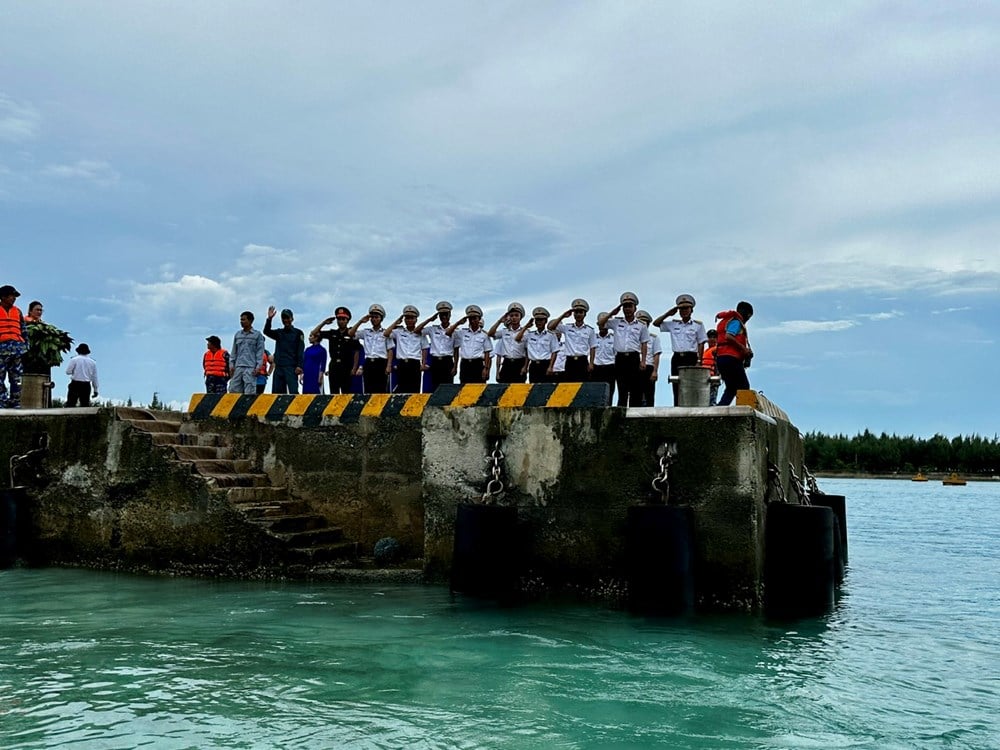
The ship departed from Cat Lai port on April 30th, which also marked the 50th anniversary of the liberation of the Truong Sa archipelago. Not far away, a solemn ceremony commemorating the Liberation Day of Southern Vietnam and the reunification of the country was taking place.
The tugboat sounded a long whistle. Everyone on deck looked towards the harbor and waved. Below the pier, rows of uniformed personnel—navy, youth, representatives of various units—stood solemnly in straight lines. They waved, they sang. As soon as a melody began on the ship, those on the dock immediately joined in singing along.
The ship left the dock, moving further and further away. Those who remained became smaller in my vision, shrinking to tiny dots. It was much later that I truly understood why a farewell procession was necessary. "Very long" was a feeling, a mental image. In reality, it was only a week.
You don't need to fly into space; simply boarding a ship to Truong Sa is already embarking on a different journey – a journey that transcends space and time. Travel to grow. Travel to gain a clearer understanding of your responsibilities. Travel to learn how to love deeply. And travel to understand why some people remain, standing there, singing and waving, until they can no longer see you.
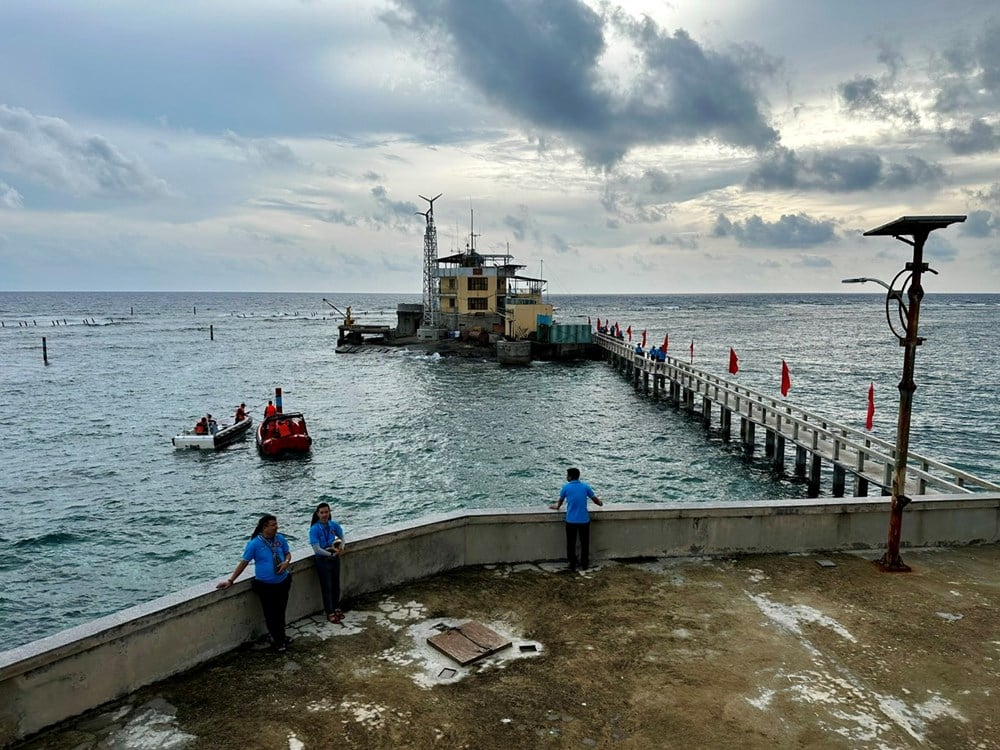
Each year, several delegations are sent to visit and work with the military and people of the Truong Sa archipelago. This year marks the 17th anniversary of the "Youth for the Homeland's Seas and Islands" journey, a period long enough for a person to reach maturity and be ready to enter life as an independent citizen.
Each delegation had its own assigned tasks and activity program. Among them, the "Youth for the Homeland's Seas and Islands" journey, organized by the Central Committee of the Ho Chi Minh Communist Youth Union, selected the most outstanding individuals representing the younger generation across the country. They went to the islands not only carrying the sentiments of the mainland's youth, but also responsibility, enthusiasm, and a fresh breeze from the mainland, blending into the rhythm of youth life amidst the vast ocean.
On the first night, the sea was pitch black and thick. The wind howled. The sky was vast and boundless. The stars appeared more and more frequently. Sitting on the deck, looking up at the sky: a black universe dotted with stars, so immense that there was no way in, no way out.
Looking around, all that could be seen was darkness, a blackness that swallowed every detail, making it impossible to distinguish between water, sky, and shore. It was like a ship anchored in a stillness, even the light was still. A feeling of absolute insignificance before nature.
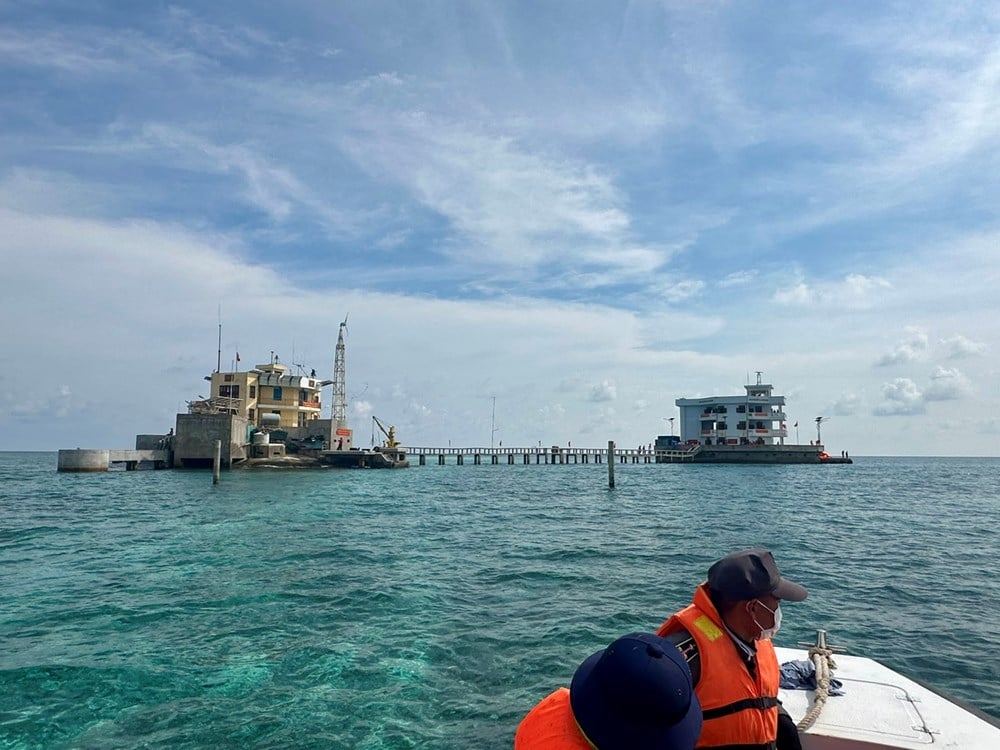
It took almost two days by boat to reach the first island since leaving Cat Lai. Da Thi is one of the furthest islands. A submerged island, two buildings erected on a coral reef in the middle of the vast ocean. Nearly 48 hours by boat from the mainland means it's very far, very windy, very rough, and very isolated.
Those two buildings were where the soldiers lived, worked, produced goods, stood guard, and prepared for battle. I call them soldiers, but if I were at home, I'd probably call them my nephews or nieces. Their faces were tanned by the sun and wind, and their ages were only slightly older than the age of the Youth Journey .
That afternoon, as the delegation set foot on Sinh Ton Island, it started to rain. The soldiers on the island stood in the rain waiting to welcome them. The sea breeze was cold and damp, yet the entire delegation stood solemnly, while the welcoming faces were radiant and smiling.
Later I realized that every time I entered or left the island, there were people to welcome and see me off. Rain or shine, there were always solemn yet radiant faces on the pier, waving to reassure me.
Sinh Ton, along with Co Lin and Len Dao, are three islands near Gac Ma. When I asked a soldier standing guard by the artillery position on Sinh Ton Island if he wanted to send a message to his loved ones, I thought he would send a message to his girlfriend or sweetheart. But he asked me if I had visited Co Lin and Len Dao. If so, he asked me to send his best wishes to his comrades, hoping they would remain steadfast and successfully complete their mission. If they remembered each other, he asked me to pass the message on through subsequent delegations.

I even forgot to introduce myself by name. But my voice was clear and strong. Sometimes, people no longer have proper names, only "soldiers of Sinh Ton Island" looking towards "soldiers of Co Lin and Len Dao Islands."
My hands were shaking and my eyes were blurry after I finished recording. I had to quickly say goodbye to her and take a walk around the island to calm my heart. There are things that are very human, like emotion and tears, but they can weigh down a soldier's spirit, so it's necessary to suppress them and not show them.
When a young person, nineteen or twenty years old, is asked who they would like to send a message to, the first thing that comes to mind is their comrades, those who are also guarding the homeland day and night in crucial and dangerous positions.
I wished my teammates success in completing their mission, and asked them to send my message through another unit if they remembered me. Who would have thought that the generation born after 2000, growing up in the digital age, would still think and live like that? On the island, phone signals are intermittent, and there's absolutely no internet. I keep thinking about that message.
What is youth? It is the future: the future of the family, of the country, of the nation. And when the youth of our homeland know to prioritize their common duty, their camaraderie, then we not only have the right to hope, but also have a basis to believe in that future.
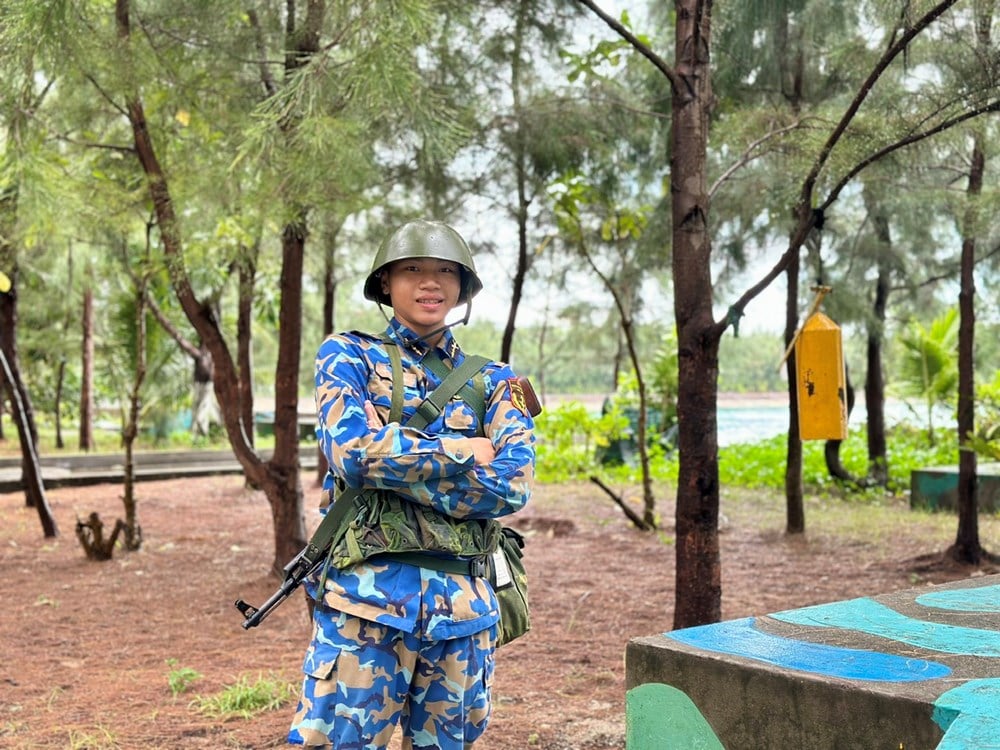
I have passed through my youth. After all, I am just a mother, and I see them as my own children. But they have reached a different level of maturity, not in their weathered, resilient appearance, but from the depths of their consciousness, when they have learned to live a life for the common good, for the nation.
At dawn the next day, when I went up on deck, the ship had anchored near Co Lin. Gac Ma was visible from the deck with the naked eye, seemingly within reach.
The brothers stood side by side, their eyes fixed on that spot. Silence. No one spoke. They didn't know what to say. And they couldn't say anything. There are wounds that, every time they are seen, sting – a dull, lingering pain that can never be bandaged, that will never heal. And it must never heal.
Upon arriving on the island and playing back the audio recording of the message from comrades on Sinh Ton Island to Co Lin Island, I noticed hurried hand gestures and faces secretly turning away to hide tears—all belonging to the officers and young members of the working group. No one said anything, but those who had come from the mainland witnessed the willpower and determination of these very young faces, feeling both sympathy and admiration.
Crying isn't a sign of weakness; it's out of emotion at the maturity of these young people, their growth in thought and feeling. Wind, sun, sea salt, and discipline have forged them into true soldiers.
Only upon arriving on the island did I understand that the saying "the island is our home, the sea is our homeland" is not just a slogan, but an echo from the heart. Here, there is no longer individuality. No longer "I," no longer "you," but only a single subject: "the entire island." The entire island lives. The entire island studies. The entire island produces. And the entire island is ready to fight.
Although both are rocky islands, Len Dao is smaller and faces more difficult conditions than the others. Across the small bridge connecting the two blocks of buildings is a small courtyard where a cultural exchange is taking place. On this side of the bridge is the block of buildings with the sovereignty marker and guard post.
When I told them to record a message to send to their families, saying whatever they wanted, as if I wasn't there, the young men, tanned and wiping away the sweat streaming down their faces from the scorching sun, still managed a smile and replied: "I'm fine, the commander and my comrades are taking very good care of me, Mom, please rest assured at home. Tell Grandma to take care of herself, I'll call home this weekend."
His face was tanned dark by the sun, his eyes squinted and barely open, yet he still smiled brightly as he gave instructions to reassure those on the home front.
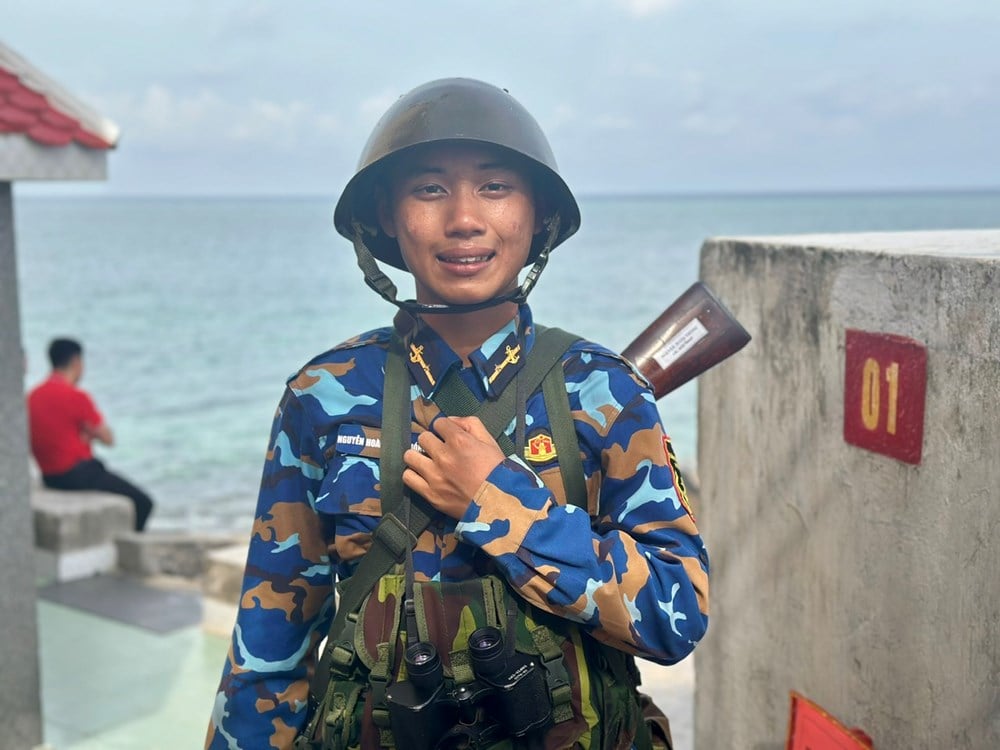
As night fell, sitting on the deck, I gazed up at the vast, boundless universe, but all around me I could see the reflections of fishing boats. The lights formed an arc around the ship, casting shadows along the horizon. My heart suddenly calmed down. There was light. There was life. There were fellow countrymen. I felt warm and secure, a stark contrast to the profound sense of being adrift in the vast ocean on that first night.
The delegation organized two memorial ceremonies in two sacred maritime areas: one near the island where soldiers fell in the war to defend national sovereignty; and one near the offshore platform, where soldiers held out until the very last moment before sacrificing themselves amidst raging storms. Many young people have become one with the sea, forever resting at the bottom of the ocean. Each wave whispers the lives that ended prematurely in their youth.
The vast ocean is full of uncertainties. The final stop on our trip was the DKI/14 platform. The structure stood isolated in the middle of the ocean, perched on stilts. When we arrived, the sea was calm, allowing the entire delegation to go aboard to visit and work with the soldiers on the platform. Even in such calm waters, climbing was still a bit precarious.
We heard stories of delegations encountering rough seas, where the transfer boats couldn't get the officers to the offshore platforms. So they had to stand on the ships and on the platforms, waving to each other and using radios to hear each other. They could see each other, but couldn't get closer, couldn't touch, couldn't speak directly to each other.
A friend on another mission sent me a video of the soldiers standing in the storm, waving flags and hands, waving until the ship disappeared into the distance. Tiny figures moved in the direction the ship went, waving to each other until the flag and the people were just small dots, the platform like a matchbox in the turbulent ocean.
Seven days. Six islands, one offshore platform. Fourteen waves of farewell. Each time a ship approached from the sea, or gradually receded into the vast expanse of waves, the soldiers would line up, wave goodbye, and wish each other a safe voyage.
We bid farewell until we are only seen as tiny dots. These tiny dots fade away. These tiny dots may dissolve into nothingness. Many such tiny dots have merged into the depths of the ocean, remaining forever with the sea, to continue writing the heroic and tragic chapters in the nation's history of defending its country.
When the ship arrived at Cat Lai port, I saw warm waves welcoming the returning group. This time, I didn't text my relatives. The internet was fully functional after a week of downtime. But I stood there, on the deck, watching the mainland drawing closer, watching the welcoming hands.
Understanding that I am accepted, loved, and able to return, that I still have a place to come home to, is thanks to the many young people who have forever fallen, departed, and remained with the sea.
Those youths who will never return laid the foundation for future generations. And even today, many other young people are still carrying guns at sea, temporarily setting aside their private lives and personal interests for the sake of their compatriots and their country.
Each year, the ships that visit the soldiers and civilians in Truong Sa and the DKI offshore platforms usually take place during the two months when the sea is calmest. Out of twelve months in a year, only two months see scattered visitors, while the remaining ten long months are spent alone in the vast ocean. Ten months without going to the pier to wave. Ten months of sending longing and memories on the waves and wind. But the mainland still remembers the islands. And the islands understand that the mainland will always be their steadfast support base.
If someone is still standing there, waving until they can no longer see me, it's because they're hoping for the day I return.
Source: https://baovanhoa.vn/chinh-tri/tuoi-tre-156730.html


![[Photo] Commemorating the unwavering friendship between Vietnam and Laos](/_next/image?url=https%3A%2F%2Fvphoto.vietnam.vn%2Fthumb%2F1200x675%2Fvietnam%2Fresource%2FIMAGE%2F2026%2F01%2F27%2F1769518372051_ndo_br_1-jpg.webp&w=3840&q=75)




![[Photo] Announcement Ceremony of the Art Program “Light Concert – Welcoming the New Year 2026”](/_next/image?url=https%3A%2F%2Fvphoto.vietnam.vn%2Fthumb%2F1200x675%2Fvietnam%2Fresource%2FIMAGE%2F2026%2F01%2F27%2F1769514762857_le-cong-bo-ct-hoa-nhac-anh-sang-1772-9042-jpg.webp&w=3840&q=75)

























































![[Hightling] Conference on the Implementation of Tasks for 2026](/_next/image?url=https%3A%2F%2Fvphoto.vietnam.vn%2Fthumb%2F402x226%2Fvietnam%2Fresource%2FIMAGE%2F2026%2F01%2F27%2F1769477856197_dsc01637.jpeg&w=3840&q=75)




























![OCOP during Tet season: [Part 2] Hoa Thanh incense village glows red.](/_next/image?url=https%3A%2F%2Fvphoto.vietnam.vn%2Fthumb%2F402x226%2Fvietnam%2Fresource%2FIMAGE%2F2026%2F01%2F27%2F1769480573807_505139049_683408031333867_2820052735775418136_n-180643_808-092229.jpeg&w=3840&q=75)
![OCOP during Tet season: [Part 1] Ba Den custard apples in their 'golden season'](/_next/image?url=https%3A%2F%2Fvphoto.vietnam.vn%2Fthumb%2F402x226%2Fvietnam%2Fresource%2FIMAGE%2F2026%2F01%2F26%2F1769417540049_03-174213_554-154843.jpeg&w=3840&q=75)





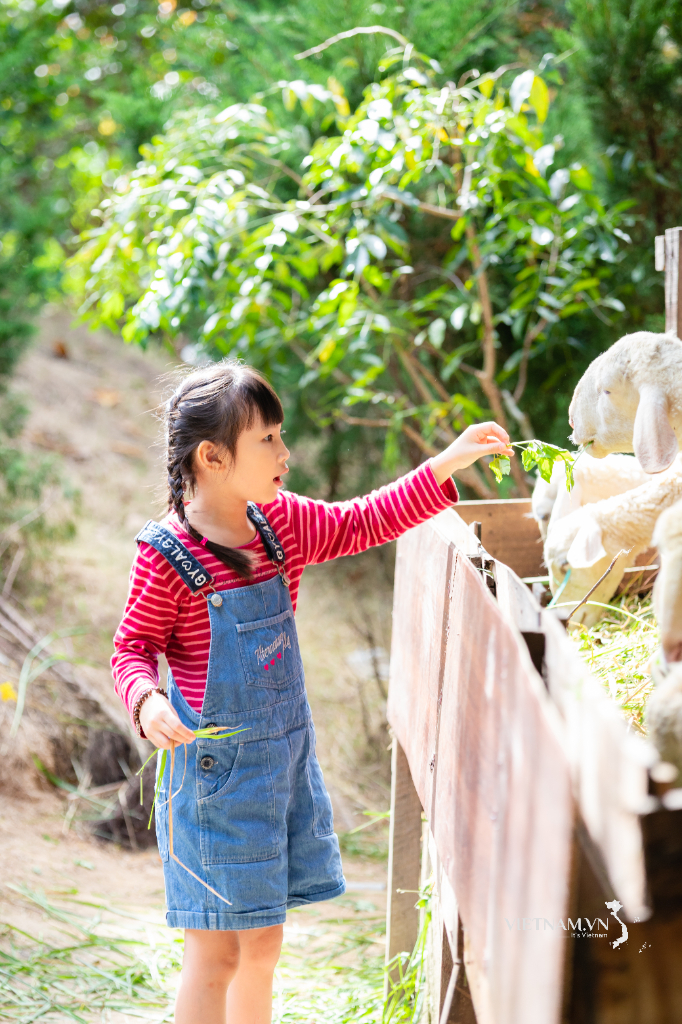
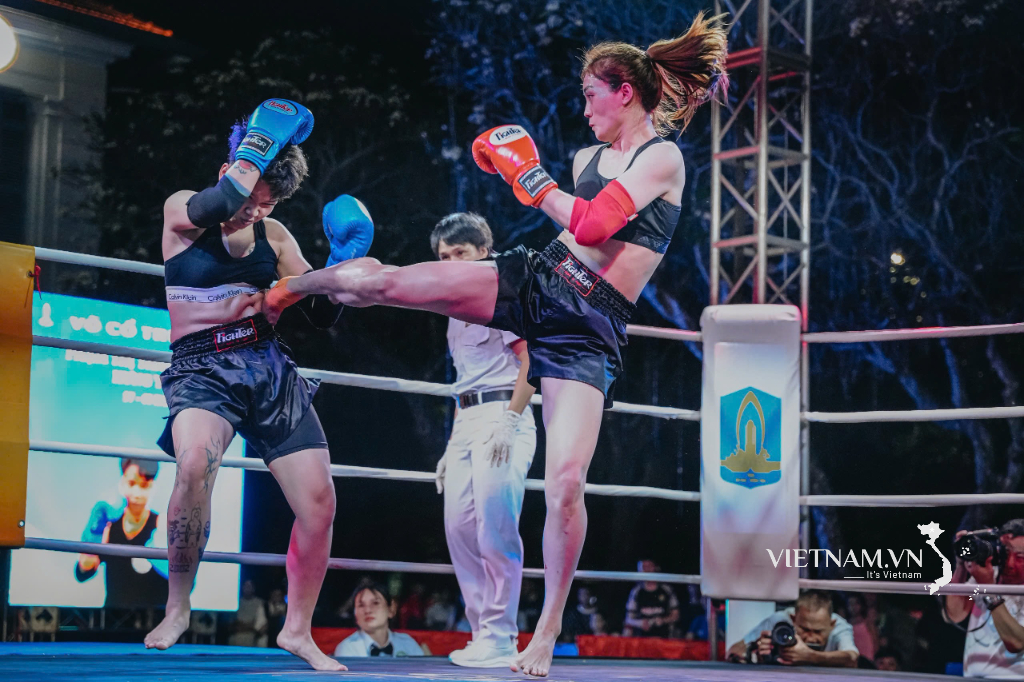

Comment (0)